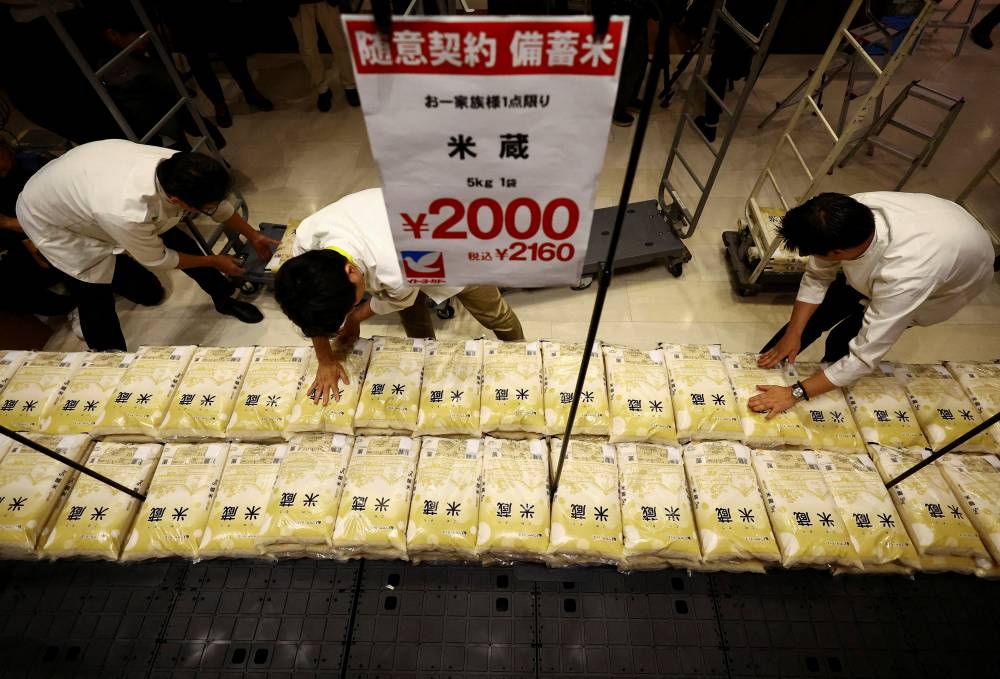Japanese lawmaker says rice reserves mostly go to chickens

A lawmaker of Japan’s main opposition party said Saturday that government rice reserves recently put on sale are mostly consumed by chickens, doubling down on remarks that could be perceived as insensitive to people who have snapped up the old rice due to cheaper prices.
Kazuhiro Haraguchi of the Constitutional Democratic Party of Japan made the remarks at a gathering in southwestern Japan to shore up support ahead of the upper house election, even after Yuichiro Tamaki, leader of another opposition party, apologized a week ago for likening the stockpiles to “animal feed.”
Apparently referring to reserve rice from 2021 that the government released to the public in a bid to curb soaring prices of the staple food nationwide, Haraguchi said, “Is that something that we should buy gratefully?”
“It’s 83 yen per 5 kilograms. That costs more than 2,000 yen,” the 65-year-old House of Representatives lawmaker said. “Chickens are the ones mostly eating that really old rice. Honorable humans don’t.”
Haraguchi had posted similar remarks on X in late May, around the same time Tamaki, head of the Democratic Party for the People, drew criticism on social media after he referred to the government’s rice stockpiles as ending up as “animal feed in a year.”
Noting that Tamaki had apologized for his remarks, Haraguchi said, “Are we not allowed to tell the truth?”
Speaking to reporters after the gathering hosted by a local labor union in Saga, Haraguchi said, “What I said was common sense. It is something that becomes animal feed, so there could be contaminants in it.”
Tackling soaring rice prices has emerged as a key political issue ahead of the House of Councillors election this summer, with the government led by Prime Minister Shigeru Ishiba recently taking the rare step of selling stockpiled rice under direct contracts with retailers rather than through auctions, which were blamed for keeping retail prices high.
Rice prices have doubled from last year, averaging 4,260 yen ($29) per 5 kg in late May. The government expects that the cheaper rice sold through direct contracts will bring down overall prices.

















